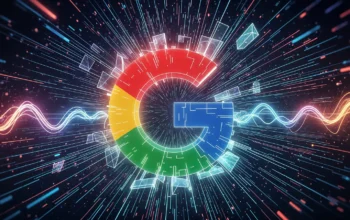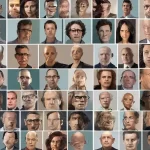In September 2023, the acclaimed actress Scarlett Johansson was approached by Sam Altman, the CEO of OpenAI, a prominent artificial intelligence research company. Altman extended an invitation for Johansson to lend her distinctive voice to OpenAI’s cutting-edge language model, ChatGPT 4.0. The rationale behind this proposition, as conveyed by Altman, was multifaceted.
Firstly, he believed that Johansson’s involvement could bridge the gap between technology firms and creative professionals, fostering a harmonious symbiosis. Secondly, Altman expressed his conviction that the actress’s mellifluous tones would instill a sense of comfort and familiarity among users, easing their transition into the rapidly evolving realm of human-AI interactions.
Johansson’s Initial Reservations
Despite Altman’s persuasive arguments, Johansson ultimately decided to decline the offer, citing personal reasons. Little did she know that this decision would ignite a firestorm of controversy and allegations of intellectual property infringement.
The Unveiling of ChatGPT 4.0 and the “Sky” Voice
Nine months after her initial encounter with Altman, OpenAI unveiled its highly anticipated ChatGPT 4.0 model, complete with an array of voice options for users. Among these voices was one dubbed “Sky,” which immediately drew comparisons to Johansson’s distinctive vocal stylings.
Johansson’s friends, family, and the general public were quick to notice the uncanny resemblance between the “Sky” voice and the actress’s own. News outlets and commentators alike echoed these sentiments, further fueling the controversy.
Johansson’s Shock and Disbelief
Upon listening to the demo herself, Johansson expressed a profound sense of shock, anger, and disbelief. She found it inconceivable that Altman would pursue a voice that bore such an eerie similarity to her own, to the extent that even her closest confidants were unable to discern the difference.
Compounding her outrage was Altman’s alleged insinuation that the resemblance was intentional. In a cryptic message posted on the social media platform X (formerly Twitter), Altman simply wrote the word “her,” which Johansson interpreted as a direct reference to her role in the critically acclaimed film “Her.” In this movie, she had voiced an AI assistant named Samantha, with whom the protagonist develops an intimate relationship.
OpenAI’s Response and Subsequent Actions
Faced with mounting criticism and Johansson’s allegations, OpenAI acknowledged the concerns surrounding the “Sky” voice. In a statement released on X, the company announced that it would “pause the use of Sky while we address them.”
Additionally, OpenAI provided further clarification on its website, detailing the extensive process undertaken to select the voices for ChatGPT 4.0. According to the company, each of the five distinct voices was meticulously chosen over a five-month period, involving professional voice actors, talent agencies, casting directors, and industry advisors.
OpenAI emphasized that every actor involved in the project was compensated above market rates, a policy that would continue as long as their voices were utilized in the company’s products. The company also revealed that it had received over 400 submissions from aspiring voice actors, ultimately selecting five finalists who flew in to record their voices in September.
Altman’s Denial and Apology
In a statement to Entertainment Weekly, Altman categorically denied any intentional attempt to replicate Johansson’s voice. He asserted, “The voice of Sky is not Scarlett Johansson’s, and it was never intended to resemble hers. We cast the voice actor behind Sky’s voice before any outreach to Ms. Johansson.”
Altman extended an apology to Johansson, acknowledging that OpenAI had failed to communicate effectively with her regarding the matter. “Out of respect for Ms. Johansson, we have paused using Sky’s voice in our products. We are sorry to Ms. Johansson that we didn’t communicate better,” he stated.
Johansson’s Legal Action and Demand for Transparency
Undeterred by OpenAI’s response, Johansson took decisive legal action, hiring counsel to represent her interests. Her attorneys issued two letters to the company, demanding a detailed explanation of the process employed to create the “Sky” voice.
Johansson’s statement underscored the gravity of the situation, emphasizing the broader implications for individual rights and identity protection in an era grappling with deepfakes and the misappropriation of likeness. She expressed her unwavering commitment to seeking resolution through transparency and the enactment of appropriate legislation to safeguard individual rights.
The Broader Implications and Challenges
The controversy surrounding Johansson’s alleged voice replication by OpenAI highlights the complex ethical and legal quandaries that arise as artificial intelligence continues to advance at an unprecedented pace.
Intellectual Property and Copyright Concerns
The incident has reignited discussions around intellectual property rights, copyright infringement, and the potential exploitation of creative works by AI systems. Actors, authors, and other creative professionals have voiced concerns about the unauthorized use of their likenesses, voices, and written works to train AI models.
In recent months, several high-profile figures, including authors George R.R. Martin and John Grisham, have announced plans to pursue legal action against OpenAI over alleged copyright infringement related to the training of ChatGPT. The New York Times has also threatened a lawsuit, claiming that millions of its published articles were used without permission to train the AI model.
Deepfakes and Identity Protection
Johansson’s emphasis on the protection of individual identities and likenesses resonates deeply in an era where deepfakes – synthetic media that can convincingly depict people saying or doing things they never did – have become increasingly sophisticated and accessible.
As AI technologies continue to evolve, the potential for misuse and the erosion of personal autonomy and privacy becomes a pressing concern. Johansson’s stance underscores the need for robust legal frameworks and ethical guidelines to safeguard individual rights and prevent the unauthorized exploitation of identities.
The Role of Consent and Transparency
The controversy has also highlighted the pivotal role of consent and transparency in the development and deployment of AI technologies. Johansson’s initial rejection of OpenAI’s offer to voice ChatGPT 4.0 raises questions about the extent to which her wishes were respected and the potential consequences of disregarding such refusals.
As AI systems become increasingly integrated into various aspects of our lives, ensuring transparency in their development and operation becomes paramount. Individuals and stakeholders must have a clear understanding of how their data, likenesses, and creative works are being utilized, and they should retain the right to grant or withhold consent.
The Road Ahead: Balancing Innovation and Ethics

The OpenAI-Johansson controversy serves as a poignant reminder of the delicate balance that must be struck between technological innovation and ethical considerations. While the potential benefits of AI are vast, ranging from enhanced productivity to groundbreaking scientific discoveries, the responsible development and deployment of these technologies must be a priority.
As the AI landscape continues to evolve, it is imperative that stakeholders from various sectors – technology companies, policymakers, legal experts, and creative professionals – engage in constructive dialogue and collaborate to establish robust ethical frameworks and regulatory measures. These efforts should aim to foster innovation while simultaneously safeguarding individual rights, protecting intellectual property, and upholding the principles of transparency and consent.
By addressing these challenges head-on and fostering a culture of responsible AI development, we can harness the transformative power of these technologies while mitigating potential risks and preserving the values that underpin our society.









